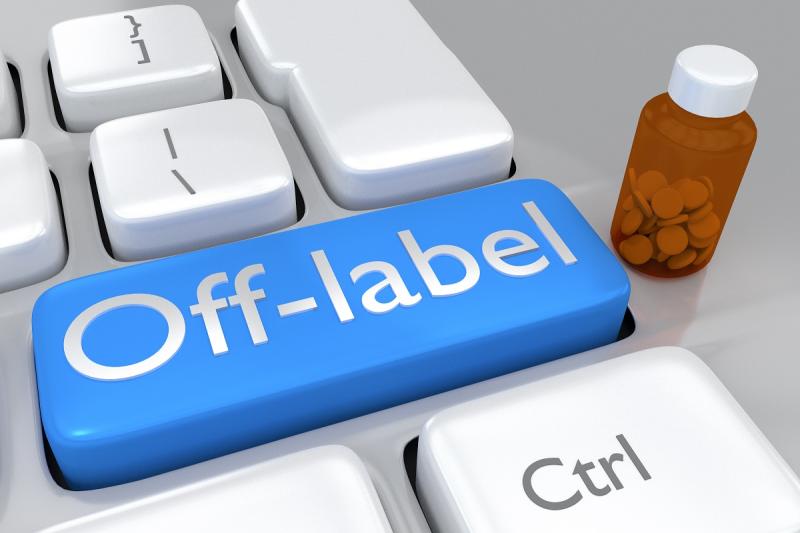
Article
Off-label Marketing: A Dangerous (and Illegal) Practice
During the COVID-19 crisis, physicians have been searching for effective treatment courses even as multiple vaccines reach approval and begin distribution. Drugs such as hydroxychloroquine and remdesivir have been touted by some in the medical community as useful. However, use of those and similar medications have not gained widespread acceptance partly due to the off-label purpose they are being recommended.
According to the Centers for Medicare and Medicaid Services (CMS), ”the use of pharmaceuticals for unapproved symptoms or conditions, in unapproved patient groups, or in unapproved dosages is referred to as “off-label” use…Promoting off-label use that is not medically accepted may have a negative impact on quality of care. If such promotion causes Medicaid to be billed for pharmaceuticals used in this way, the people responsible for the promotion may be liable for false claims.”
The False Claims Act (FCA) is the law under which off-label promotion (marketing) by drug manufacturers is enforced. And off-label drug promotion has been the subject of significant health care fraud enforcement efforts by the United States Department of Justice (DOJ) and States’ attorneys general. Penalties can be as high as three times the amount of damages sought plus an additional penalty of $5,500 to $11,000 per false claim.
Additionally, many State Medicaid programs exclude coverage for drugs that are used for off-label indications that are not medically accepted. So how have physicians been able to administer these drugs for off-label purposes and share their findings without encountering legal issues?
The answer lies in how federal and state agencies view alternative uses for approved drugs.
Off-Label Marketing vs Off-Label Use
There are circumstances when a drug may be used for treatment legally – called “off-label use.” And while off-label use and off-label marketing may seem similar, they are two distinct practices in the eyes of the medical community:
- Off-label use refers to situations where physicians prescribe an FDA-approved drug for an unapproved administration, dosage, patient age, or indication.
- Off-label marketing, on the other hand, is the practice of actually promoting a medication for an unapproved situation by a drug company.
Where the distinction gets tricky is how information about off-label use is acquired.
If, for example a doctor asks a pharmaceutical company for evidence to support a non-approved use, that company can legally share information. However, it cannot be shared via a salesperson – that would be considered a marketing activity – so it has to be through the medical affairs office. If the doctor asks a fellow physician for similar information, that sharing is deemed legal, so the drug company would not be in violation.
Off-Label Marketing Violations Totaling Billions
What is even more problematic is when pharma brands mislead physicians about whether a drug is safe and/or effective for off-label use. According to a 2009 survey of US physicians and psychiatrists, nearly half of physicians wrongfully believed in the effectiveness of at least one off-label use despite little or no scientific support for that use.
The practice of misrepresentation costs drug makers billions.
According to one source, this activity “often occurs on a massive scale and produces significant public risk… the penalties associated with it have been some of the largest in the history of the False Claims Act. Between the years 2009 and 2014, the Department of Justice (DOJ) collected over $13 billion in settlement fees from major pharmaceutical manufacturers in FCA cases related to deceptive marketing.”
Off-Label Use Is Risky
So if off-label use is legal, does it occur frequently and what are the risks to healthcare professionals and pharma brands?
An Archives of Internal Medicine study found that around 21% of all estimated uses for commonly prescribed medications were off-label and 15% of uses lacked scientific evidence of any beneficial impact for a patient. The study’s authors asserted that lawmakers should boost post-approval surveillance for under-scrutinized practices, which could lead to greater scrutiny.
Although off-label use is not illegal, physicians are taking a calculated risk by prescribing drugs without evidence. While the drug may be safe for an indication, it may not be effective. This could lead to negative feedback being shared by patients publicly, which could damage a product’s reputation. In addition, off-label prescribing may be problematic for patients because some private insurance plans don’t reimburse for drugs prescribed for off-label use.
Drug Makers Must Tread Lightly
So ultimately, pharma brands must ensure they have adequate evidence and gain FDA approval for a specific treatment prior to making claims about efficacy and safety. While the gray area exists between promotion by companies and promotion by physicians, drug makers face huge risks by violating the FCA.
Stay up-to-date with pharma marketing and other medical topics by bookmarking the Elsevier blog and market intelligence resources.
Article Written by: Alex Brown


